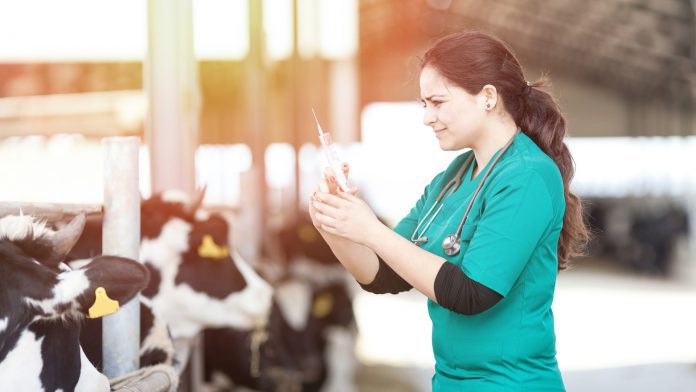
Experts from the International Livestock Research Institute (ILRI) have published the “One Health playbook”, which outlines strategies to tackle zoonotic diseases globally and prevent future pandemics.
The One Health playbook suggests 18 practical ways in which governments around the world can enhance livestock systems in developing countries to mitigate animal-borne diseases, focusing on seven critical areas in the Global South that would help protect the whole world against another global pandemic.
The global threat of zoonotic diseases
Estimates suggest that around 75% of all emerging infectious diseases in humans originated from wild and domestic animals, with zoonotic diseases predominantly impacting those who live in low-income countries. Moreover, around 2.2 million deaths each year are caused by just 13 of the 200 known zoonotic diseases.
The One Health playbook
A One Health approach comprises three key areas: animal health, human health, and environmental health, which are targeted on local, regional, national, and global levels to achieve optimal health outcomes for the global population.
Researchers at the International Livestock Research Institute suggest that investing in healthier and sustainable livestock systems can benefit the three pillars of One Health and reduce the risk of disease being transmitted from animals to humans.
The ILRI recommendations include making livestock vaccines more available and elevating their uptake to mitigate the threat of cross-species disease outbreaks, raising awareness of how to limit the spread of disease, and enhancing food hygiene and safety standards.
Jimmy Smith, the director general at ILRI, said: “It’s impossible to overstate the importance and ubiquity of livestock in countries across Africa, Asia, and Latin America. Everything from food and nutrition to gender equality, livelihoods and trade depend on farm animals.
“Healthy livestock means healthy people and environments, which not only enables low-income countries to sustainably grow their economies but also improves global health security, minimising the risk of disease outbreaks that spread worldwide.”
Improving disease detection
The recommendations also highlight the importance of advancing the early detection of emerging zoonotic diseases in animals to protect the livelihoods of people living in the poorest areas and prevent future pandemics.
An example of one of these zoonotic diseases is Middle East Respiratory Syndrome Coronavirus (MERS-CoV), which is transmitted by camels and is becoming increasingly prevalent in countries such as Kenya.
The ILRI has started an advanced analysis of MERS in camels to obtain a comprehensive understanding of camel diseases to avert potential outbreaks in people that could evolve into another pandemic.
Hung Nguyen-Viet, co-leader of the Animal and Human Health Program at ILRI, concluded: “As the World Health Organization progresses a new pandemic preparedness treaty, it is critical that governments seize the opportunity to invest in livestock systems to improve public health.
“Tackling zoonotic diseases at source would dramatically reduce the number of human illnesses and deaths while saving trillions of dollars in future epidemic or pandemic control.”










